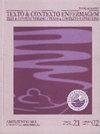CHALLENGES FACED BY NURSE-MANAGERS AT WORK IN BRAZILIAN AND PORTUGUESE HOSPITALS: A MIXED-METHODS STUDY
Q2 Nursing
引用次数: 3
Abstract
ABSTRACT Objective: to analyze the challenges found in nurse-managers' work in the Brazilian and Portuguese hospital contexts. Method: a mixed-methods research study with a sequential explanatory approach, carried out between March 2019 and March 2020 with nurse-managers from four hospitals. The study was initiated with the quantitative stage, applying a survey to 143 participants and analyzing the data by means of analytical and inferential statistics. The qualitative stage was carried out with 71 of these participants using interviews, in order to understand the challenges inherent to this job, and the data were submitted to content analysis. Integration of the findings was performed through data connection. Results: in the quantitative stage, the results evidenced that the managerial activities carried out by nurses by scenario included planning, people management, management of care processes, management of materials, quality management and leadership, with higher mean values for the first four. The qualitative stage allowed deepening the previous findings, contrasting invisibility of the planning, confirming people management as the common challenge to the realities, explaining the mean values in the national and Portuguese scopes. Integration of the findings detailed the relevance of the conflicts and the deficit of professionals in people management and leadership. Conclusion: managing people, care processes and materials are challenges for nurses in hospital management in both countries. Nurses lack structural support and ongoing training for better management and improvement of planning and leadership.巴西和葡萄牙医院护士管理人员工作中面临的挑战:一项混合方法研究
摘要目的:分析巴西和葡萄牙医院护理管理者工作中面临的挑战。方法:采用顺序解释方法的混合方法研究,于2019年3月至2020年3月期间对四家医院的护士管理人员进行了研究。本研究从定量阶段开始,对143名参与者进行调查,并采用分析统计和推论统计的方法对数据进行分析。为了了解这份工作所固有的挑战,对其中71名参与者进行了访谈,并将数据提交给内容分析。通过数据连接对调查结果进行整合。结果:在量化阶段,结果证明护士通过情景进行的管理活动包括计划、人员管理、护理流程管理、物资管理、质量管理和领导,其中前四项的平均值较高。定性阶段允许深化先前的发现,对比规划的不可见性,确认人员管理是对现实的共同挑战,解释国家和葡萄牙范围内的平均值。综合调查结果详细说明了冲突与人员管理和领导专业人员短缺的相关性。结论:人员管理、护理流程和物资管理是两国护士在医院管理中面临的挑战。护士缺乏结构性支持和持续培训,以更好地管理和改进规划和领导。
本文章由计算机程序翻译,如有差异,请以英文原文为准。
求助全文
约1分钟内获得全文
求助全文
来源期刊

Texto Contexto Enfermagem
Nursing-General Nursing
CiteScore
1.80
自引率
0.00%
发文量
85
审稿时长
>12 weeks
期刊介绍:
Texto & Contexto Enfermagem provides space for reflection and deepening of knowledge about issues of practice, teaching and research in health and nursing, at national and international levels.
The journal is published quarterly in the rolling pass or Continuous flow mode, accepting manuscripts in Portuguese, English or Spanish, in the categories original article, reflection, experience report and review. Contributions designated to the dissemination of unpublished original research results are prioritized for publication. Special issues are published at the discretion of the Board of Directors and Associate Editors. All manuscripts are published in two versions, one of which is English, aiming to cover the largest number of readers worldwide.
The editorial policy of Texto & Contexto Enfermagem is based on rigorous quality criteria for indexing and publishing (including technical and normative aspects, graphic and textual quality and excellence in scientific content); on responsibility for shared management between the Board of Directors, Editorial Board and Internal and External Editors Associates; and on the rigorous and constructive peer review, preserving the anonymity of authors and reviewers (double blinded).
 求助内容:
求助内容: 应助结果提醒方式:
应助结果提醒方式:


